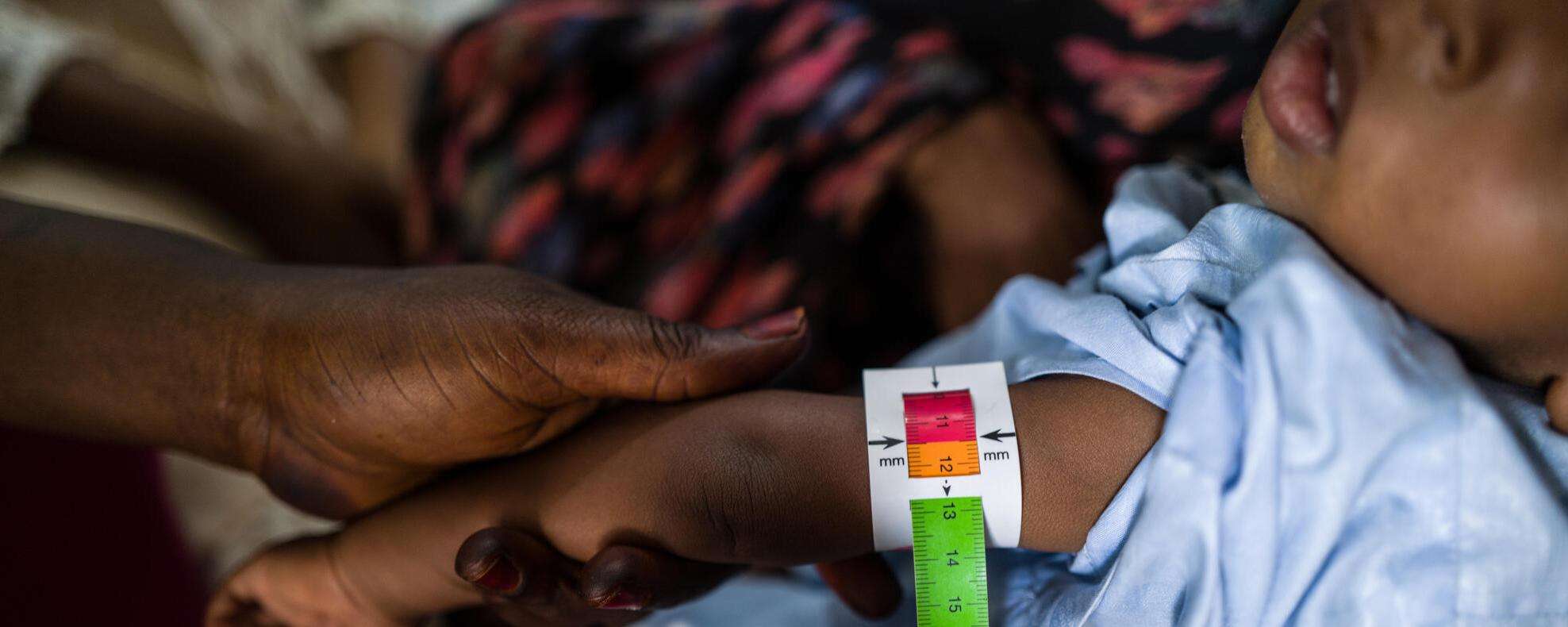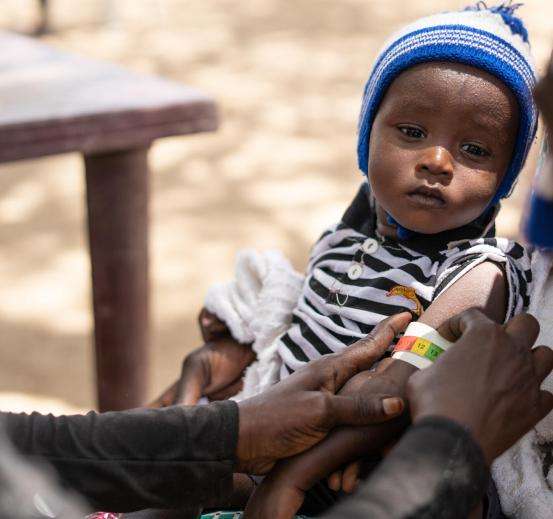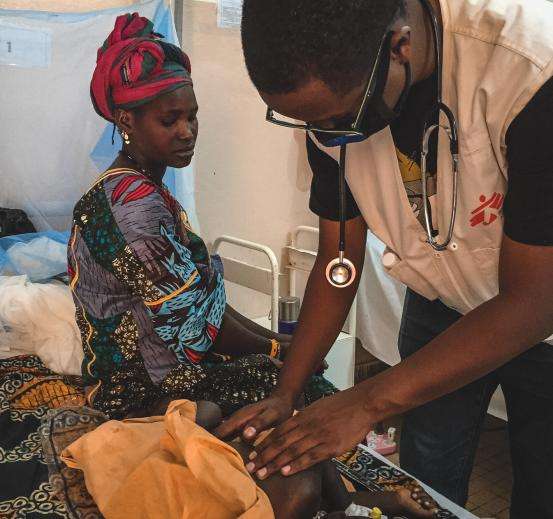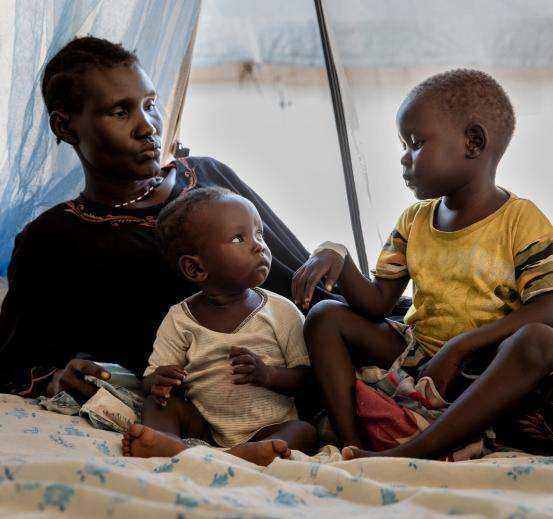
Chad 2021 © Lys Arango
During times of humanitarian crisis, children are often the most vulnerable group. Whether they are caught in conflict, experiencing a natural disaster, or affected by a deadly disease outbreak, they can bear the brunt of pain and suffering.
That’s why Doctors Without Borders/Médecins Sans Frontières (MSF) teams must always be there to provide lifesaving care for children.
Some of the most common issues that we treat our young patients for include malnutrition, malaria, HIV/AIDS, tuberculosis, and physical and psychological trauma sustained in conflict zones.
Our projects help give babies a strong start with neonatal care and early childhood checkups, provide the nutrition they need to thrive, and ensure that they receive critical vaccinations to protect them from preventable—but deadly—diseases.
Below you’ll read about how MSF is caring for children around the world, including in Chad, Mali, South Sudan, and Nigeria.
Will you join us?
With your generous investment today, we can fund projects to prevent health crises and save lives.
We hope that these powerful examples will inspire you to join us once more to help care for the next generation.
Chad
Offering a continuum of care for expectant mothers and children in the Moïssala district
Offering a continuum of care for expectant mothers and children in the Moïssala district Life expectancy in Chad is among the world’s lowest—with malaria and malnutrition being chronic problems threatening children’s lives.
The Moïssala district is home to about 500,000 people. Many struggle to access health care, especially during the rainy season when malaria is rampant. Launched in 2010 to combat malaria, MSF’s project there now brings a continuum of care to expectant mothers and children. Working with the local Ministry of Health, MSF supports surgical, obstetric, pediatric, and neonatal health services at Moïssala District Hospital, expanding its capacity during malaria season.
In smaller villages, we offer malnutrition screening, malaria testing and treatment for those under five and pregnant women, diarrhea treatment, and health center referrals. In addition, we provide consultations for children up to age 15, nutritional care, and vaccinations.
MSF also supports district health centers with outpatient malaria treatment and consultations for children under five, which totaled 53,884 in 2021.

Mali
Fighting malnutrition and malaria through pediatric care in the Koutiala region
We have provided comprehensive pediatric care for over 12 years in the Koutiala region, which historically has Mali’s highest child mortality rate due to malnutrition and malaria. In many communities, food insecurity is a concern every year. At Koutiala Hospital, MSF manages nutrition and pediatric inpatient services for 330 children.
In 2019, we opened a separate 185-bed pediatric unit that can expand to 300 beds during peak malaria season. As part of an international effort to decrease antibiotic resistance, our hospital team also monitors antibiotic prescriptions for neonatal patients.
In addition, MSF supports pediatric care at 40 community health centers throughout the district. We provide technical support and medicines and offer financial help to ensure free treatment and ongoing care. We also provide logistical support to Ministry of Health malaria prevention efforts like routine exams, vaccinations, and distribution of mosquito nets.

South Sudan
Providing maternity and pediatric care at Aweil State Hospital
With adequate medical services in South Sudan accessible to less than half the population, just one in five births involves a skilled health care worker. The under-five mortality rate is 90.7 per 1,000 live births, while fewer than half of people are vaccinated against preventable diseases.
Since 2008, MSF’s project at Aweil State Hospital has provided maternal and pediatric care to children with severe medical conditions. The maternity unit includes 24-hour inpatient care, and the 110-bed pediatric department features an intensive care unit, surgical ward, inpatient therapeutic feeding center, and neonatal unit.
The hospital sees an influx of children suffering from malaria during the rainy season, which can be complicated by malnutrition. To meet this surge, beds are added in overflow tents, and mattresses are placed in corridors as needed.
In 2021, the team also managed a seasonal preventive malaria treatment program for the area’s over 25,000 children aged three months to five years.

Nigeria
Bringing essential care to Maiduguri’s Gwange Pediatric Hospital
For over a decade, northeastern Nigeria has experienced conflict between the government and non-state armed groups. An estimated 2.1 million people have fled their homes across the region, with many losing access to health services. The situation in Borno state deteriorated dramatically in 2020 after a series of brutal mass murders and kidnappings.
Amid the strife, northern Nigeria annually faces a lean season from June until November, leading to a significant increase in malnutrition. This
is especially dangerous when combined with illnesses such as malaria and measles.
In Maiduguri, Borno’s capital, MSF built and runs the Gwange Pediatric Hospital to provide care for children aged one month to 15 years. It’s the area’s
only free pediatric hospital, with 26,634 children seen in the emergency room in 2021 alone.
MSF also assists the Ministry of Health with pediatric outpatient care during peak malaria season, when the number of patients substantially rises.

